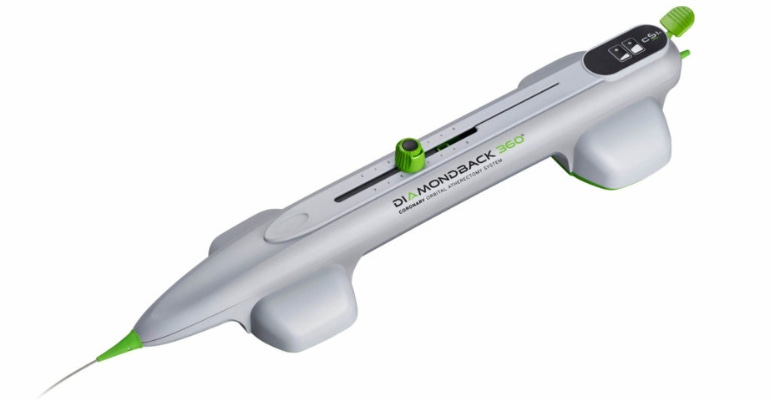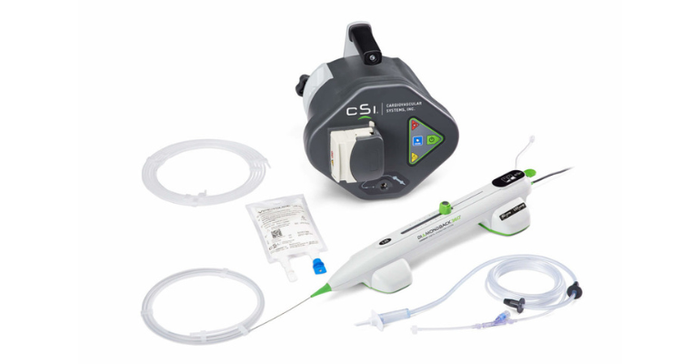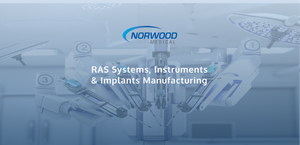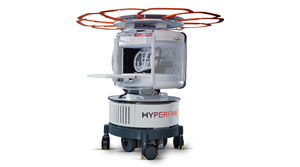Big medtech unleashed a flurry of M&A activity this week, with Abbott and GE HealthCare among the big spenders.
February 10, 2023

Abbott has agreed to acquire Cardiovascular Systems, a company that has long been considered one of the most attractive medtech M&A targets. But the pending acquisition is just one of a flurry of deals announced this week.
GE HealthCare also announced an acquisition — the company's second acquisition since completing its spinout from General Electric — while a merger between Globus and NuVasive shakes things up in the spine sector.
While we weren't expecting three big medtech M&A announcements in a single news day, we were expecting to see deal activity pick up this year after a slow 2022. As Subin Baral, EY global deals leader for the life sciences, told MD+DI in late January, rising interest rates, fears of recession, and other macroeconomic and geopolitical factors dampened dealmaking in 2022. In fact, Baral described 2022 as "one of the lowest deal-making years in a very long time." Medtech M&A was further slowed by industry-specific headwinds, such as healthcare staffing shortages that are pushing up costs and driving cutbacks in procurement of medical devices.
But, according to the 2023 EY Firepower report, the dealmaking climate appears more favorable this year for medtech and biotech companies. Looming patent loss, declining opportunities for initial public offerings, and declining special-purpose acquisition company opportunities are likely to spur M&A in the life sciences, Baral said.
Abbott's timing catches analyst by surprise
Mike Matson, a medtech analyst at Needham & Co., pegged Cardiovascular Systems as an attractive M&A target several years ago. The analyst even suspected that Abbott would be the most logical buyer. But he admitted that the timing of the deal comes as a surprise.
Abbott agreed to pay $20 a share for Cardiovascular Systems, valuing the deal at $890 million. The company's Diamondback 360 (pictured below) and Stealth 360 peripheral orbital atherectomy systems use a diamond-coated crown, attached to an orbiting shaft, which is designed to sand away plaque while preserving healthy vessel tissue.

"While [Abbott] has large coronary and peripheral vascular businesses, it lacks an atherectomy platform," Matson wrote in a report Thursday. "Additionally, [Cardiovascular Systems'] pipeline of additional products including thrombectomy devices, an intravascular lithotripsy (IVL) system, drug-coated balloons (DCBs), and a percutaneous ventricular assist device (pVAD) likely proved compelling to [Abbott]."
Marie Thibault, a medtech analyst at BTIG and a former MD+DI managing editor, noted that Cardiovascular Systems is best known for its orbital atherectomy systems in treating peripheral and coronary artery disease, competing with, or complementing other approaches like angioplasty and stenting. She does not expect another bidder to emerge for Cardiovascular Systems because other large cardiovascular players like Boston Scientific and Medtronic have atherectomy portfolios that compete with Cardiovascular Systems.
"We are not entirely surprised by the deal given [Abbott's] large cash position, bolstered by the strong cash flow generated over the last two-plus years from its COVID-testing business," Thibault wrote in a report Thursday. "Recent management commentary also signaled the company was actively assessing M&A opportunities where they could either accelerate sales, enhance an R&D program, tap into a new growth area, or augment existing pipeline initiatives."
Acquiring Cardiovascular Systems is an inexpensive way for Abbott to tap into large, high-growth, adjacent market opportunities with the target company's R&D pipeline in mechanical thrombectomy, IVL, DCBs, and mechanical circulatory support, Thibault wrote.
Meanwhile, Abbott's size and scale may expedite development, the analyst noted.
"With [Cardiovascular Systems] trading at historically depressed valuation levels, we see this as a prudent purchase with a favorable risk/reward profile for [Abbott]," Thibault wrote.
GE HealthCare has medtech M&A fever
GE HealthCare has been independent for less than two months and is already on its second deal in 2023. On Thursday, the company said it agreed to acquire Caption Health, a private company that specializes in using artificial intelligence to assist in conducting ultrasound scans.
GE HealthCare did not disclose financial terms of the deal but said it would be funded by cash-on-hand. This deal would support Chicago-based GE HealthCare’s $3 billion ultrasound business. The tuck-in acquisition is expected to help expand affordable access to ultrasound imaging to novice users and is aligned with the company's broader shift to precision care globally.
In January, GE HealthCare announced its acquisition of Imactis, a French developer of CT interventional guidance technology. That medtech M&A came about a week after GE HealthCare completed its spinoff from General Electric.
About the Author(s)
You May Also Like




